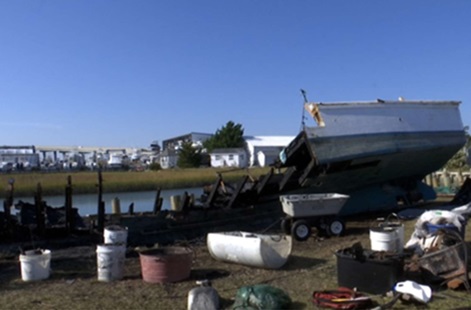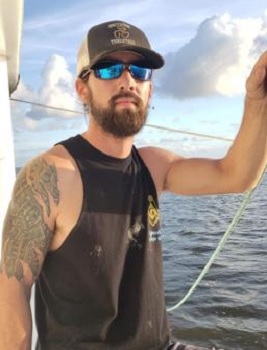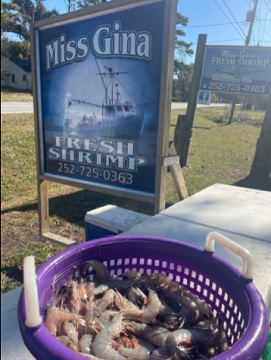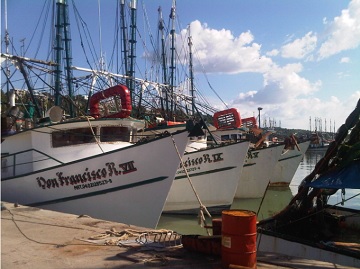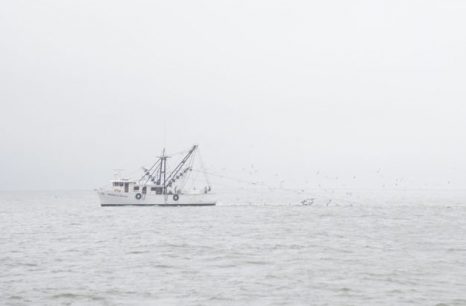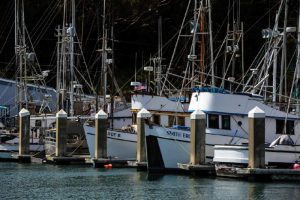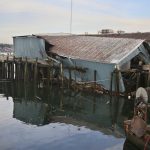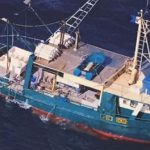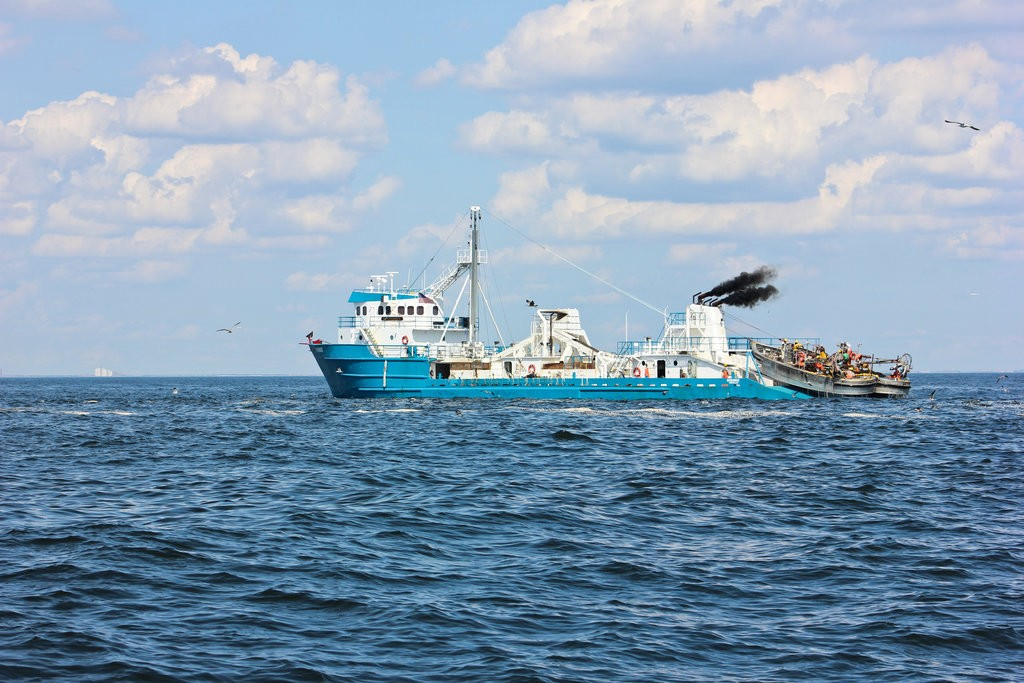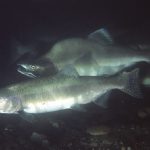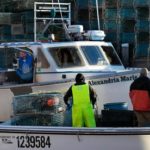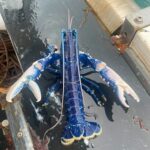Tag Archives: shrimp industry
Fewer shrimpers are hitting the water in North Carolina
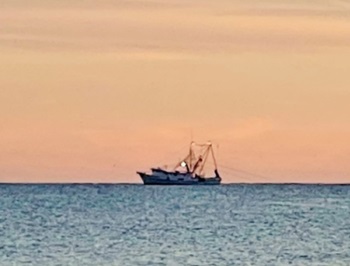 You remember what Forrest Gump says after he becomes a shrimp boat captain: “Shrimping tough! “Well, that’s certainly true in North Carolina, where shrimp is the second-most commercially harvested seafood. The total dockside value of shrimp in the state in 2022, what seafood dealers pay before it gets sold wholesale, was about $10 million. That’s down from about $30 million in the 1980s and 1990s. The slip in value has led to a decline in the number of licensed shrimpers hitting the water, to the lowest on record in 2022. Reporter Johanna Still looked into what’s behind it all. more, >>listen or read<< 10:55
You remember what Forrest Gump says after he becomes a shrimp boat captain: “Shrimping tough! “Well, that’s certainly true in North Carolina, where shrimp is the second-most commercially harvested seafood. The total dockside value of shrimp in the state in 2022, what seafood dealers pay before it gets sold wholesale, was about $10 million. That’s down from about $30 million in the 1980s and 1990s. The slip in value has led to a decline in the number of licensed shrimpers hitting the water, to the lowest on record in 2022. Reporter Johanna Still looked into what’s behind it all. more, >>listen or read<< 10:55
New England’s decades-old shrimp fishery, a victim of climate change, to remain closed indefinitely
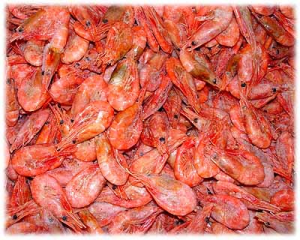 New England’s long-shuttered shrimp business, which fell victim to warming waters, will remain in a fishing moratorium indefinitely, fishery regulators ruled on Friday. The industry has been in a moratorium since 2013 in large part because environmental conditions off New England are unfavorable for the cold water-loving shrimp. That moratorium will remain in effect with no firm end date, a board of the regulatory Atlantic States Marine Fisheries Commission voted Friday. The board stopped short of calling the move a permanent moratorium because it included a provision to continue monitoring the shrimp population and consider reopening the fishery if the crustaceans approach a healthy level. Some U.S. fishermen have advocated trying to save New England’s shrimp fishery with new management approaches. Glen Libby, a former shrimp trawler, said regulators need to gather more data before taking drastic measures to close a historic fishery. more, >>click to read<< 14:20
New England’s long-shuttered shrimp business, which fell victim to warming waters, will remain in a fishing moratorium indefinitely, fishery regulators ruled on Friday. The industry has been in a moratorium since 2013 in large part because environmental conditions off New England are unfavorable for the cold water-loving shrimp. That moratorium will remain in effect with no firm end date, a board of the regulatory Atlantic States Marine Fisheries Commission voted Friday. The board stopped short of calling the move a permanent moratorium because it included a provision to continue monitoring the shrimp population and consider reopening the fishery if the crustaceans approach a healthy level. Some U.S. fishermen have advocated trying to save New England’s shrimp fishery with new management approaches. Glen Libby, a former shrimp trawler, said regulators need to gather more data before taking drastic measures to close a historic fishery. more, >>click to read<< 14:20
Locals want more rules for seafood imports
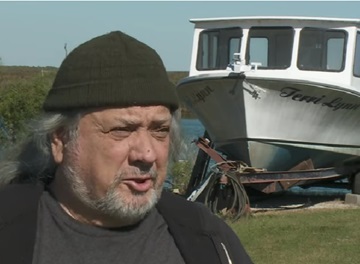 Only about 10% of seafood consumed in America is domestic. That’s crippling the Louisiana seafood industry. “For the last two years it’s just about ruined the industry,” Louisiana fisherman Pete Gerica said. In his 50 years on the water, Gerica has never seen it this bad. “There’s just so much you can take,” Gerica said. “Fuel prices being $4.00 a gallon. The cost of everything you buy, it’s just you can’t stay in business if you keep on spending money and you ain’t making none.” Monday, Congressman Garret Graves and Lt. Governor Billy Nungesser testified before the Louisiana Seafood Task Force in Baton Rouge. more, video, >>click to read<< 12:40
Only about 10% of seafood consumed in America is domestic. That’s crippling the Louisiana seafood industry. “For the last two years it’s just about ruined the industry,” Louisiana fisherman Pete Gerica said. In his 50 years on the water, Gerica has never seen it this bad. “There’s just so much you can take,” Gerica said. “Fuel prices being $4.00 a gallon. The cost of everything you buy, it’s just you can’t stay in business if you keep on spending money and you ain’t making none.” Monday, Congressman Garret Graves and Lt. Governor Billy Nungesser testified before the Louisiana Seafood Task Force in Baton Rouge. more, video, >>click to read<< 12:40
Imported shrimp eaten in U.S. may not be safe – U.S. Rep. Castor wants to do something about it
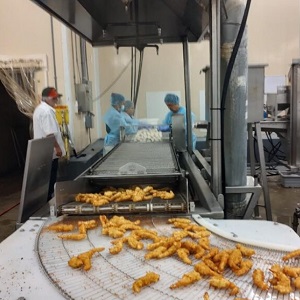 With inventories of shrimp sitting at docks throughout the Gulf Coast due to an abundance of imported seafood, the shrimp industry and U.S. Rep. Kathy Castor of Florida want to increase the purchase of domestic shrimp in the United States and provide more federal funding to regulate imported shrimp for consumers. John Williams is the executive director of the Southern Shrimp Alliance, which represents members of the shrimp industry from Texas through North Carolina. He said a lot of his members that are suffering right now. Castor’s bill, the Laws Ensuring Safe Shrimp Act (LESS Act) would address that issue by vastly increasing funding for the FDA to do inspections of foreign produced shrimp. >click to read< 16:07
With inventories of shrimp sitting at docks throughout the Gulf Coast due to an abundance of imported seafood, the shrimp industry and U.S. Rep. Kathy Castor of Florida want to increase the purchase of domestic shrimp in the United States and provide more federal funding to regulate imported shrimp for consumers. John Williams is the executive director of the Southern Shrimp Alliance, which represents members of the shrimp industry from Texas through North Carolina. He said a lot of his members that are suffering right now. Castor’s bill, the Laws Ensuring Safe Shrimp Act (LESS Act) would address that issue by vastly increasing funding for the FDA to do inspections of foreign produced shrimp. >click to read< 16:07
EDITORIAL: Commercial fishing avoids being gaffed one more time
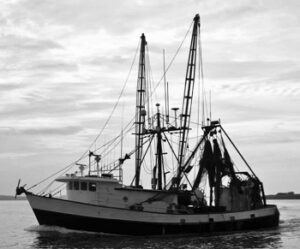 In August of 2020, almost three years before the date of the circuit court decision, a citizen’s lawsuit was filed against local shrimp trawl operators who regularly trawl for shrimp in Pamlico Sound. The plaintiffs argued that shrimp trawlers are violating the Clean Water Act by engaging in two type of unpermitted activity, “throwing bycatch (untargeted fish) overboard and disturbing sediment with their trawl net.” Named as defendants were local trawl owners who fortunately, with the help of outside support, were able to withstand the cost and time to defend themselves and by extension, the commercial fishing industry, during the three-year path of the lawsuit. >click to read< 08:15
In August of 2020, almost three years before the date of the circuit court decision, a citizen’s lawsuit was filed against local shrimp trawl operators who regularly trawl for shrimp in Pamlico Sound. The plaintiffs argued that shrimp trawlers are violating the Clean Water Act by engaging in two type of unpermitted activity, “throwing bycatch (untargeted fish) overboard and disturbing sediment with their trawl net.” Named as defendants were local trawl owners who fortunately, with the help of outside support, were able to withstand the cost and time to defend themselves and by extension, the commercial fishing industry, during the three-year path of the lawsuit. >click to read< 08:15
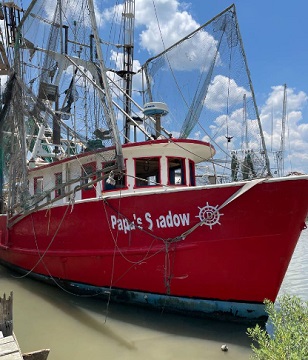
What you should know about The Shrimpocalypse, the wipeout of a time-honored US industry
On the inviting, teal-colored water in the shipping channels off the coast of southern Louisiana, Phillip “Rooster” Dyson pilots his bright red shrimp boat named Papa’s Shadow through a landscape he no longer recognizes. His practiced gaze sweeps over the water, but very little remains of the small fishing community of Cameron, where he has lived all his 40 years. The rickety wooden social clubs, bars, homes, and colorful shrimping boats are gone, most of it replaced by giant liquid natural gas terminals, and many more are planned for Louisiana’s fragile coast. “It costs $400 just to take the boat out,” he said in his strong Southern Creole accent, adding that July can often be a slow month for shrimp. One of his most recent catches in mid-July brought in a measly $200, to be shared between himself and the two men that work on his boat. Dyson has eight kids, while his employees also have families. Photo gallery, >click to read< 11:47
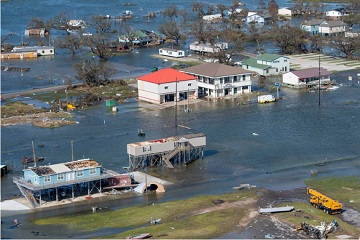
Federal Fisheries disaster declared for Louisiana over 2020 hurricanes – Mississippi also sees disaster declaration
The federal government has announced its approval of a disaster declaration over damage to Louisiana fisheries due to three 2020 hurricanes, opening the door to federal aid for commercial fishers. Separately, Mississippi fisheries were issued another disaster declaration over the unprecedented 2019 Bonnet Carre Spillway openings in Louisiana. The governor noted the affected parishes were home to nearly 2,500 commercial fishers and vessels combined along with more than 100 wholesale dealers and a similar number of charter captains. The storm led to damaged docks and boating facilities, lost gear and vessels, lost housing and loss of stored seafood, Edwards said. >click to read< 13:14
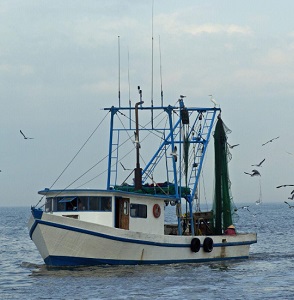
Louisiana: Lawmakers taking action to protect state’s seafood industry
Fishermen in Louisiana are suffering from imports and they’re worried about the future of the seafood industry in the state. It’s why lawmakers are putting tougher restrictions on imports to help struggling shrimpers. Fishermen say they are at risk of losing their livelihoods due to inflation and the abundance of imported seafood. It’s why shrimpers stood on the capitol steps urging lawmakers to do something. Louisiana Shrimp Association President Acy Cooper has been a fisherman in Louisiana for 45 years. He said he hopes he is able to keep it alive so that his grandkids can carry on the legacy. >click to read< 09:12
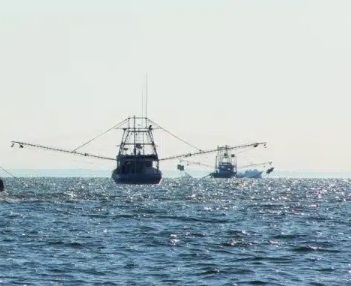
Shrimp season in Mississippi to open on May 22
The Mississippi Department of Marine Resources (MDMR) has set the opening date for the 2023-2024 shrimp season in state territorial waters for Monday, May 22 at 6 a.m. All regulations of the MDMR will be in full force and effect, and all boats engaged in catching and transporting shrimp from Mississippi waters must be licensed or permitted by the agency before beginning operations. Staff will continue to sample prior to the opening date. The shrimp season opening date may be postponed if sampling indicates movement of large numbers of juvenile brown shrimp into this area. >click to read< 13:04

High fuel costs impacting shrimping industry in Charleston
The shrimping scene on Shem Creek looks like something out of a movie. Tarvin Seafood supplies shrimp to over 75 buyers in Charleston. In 12 years of business, Cindy and her son Kola Tarvin have seen the tides shift a lot in the industry, but not quite like they have the last two years — especially when it comes to fuel prices. “Couple boats just this year have left the creek,” Kola Tarvin said. Cindy Tarvin says fuel prices have skyrocketed. “It was almost five dollars at the end of last season, per gallon,” Tarvin said. And it has a ripple effect on their business. >video, click to read< 11:37
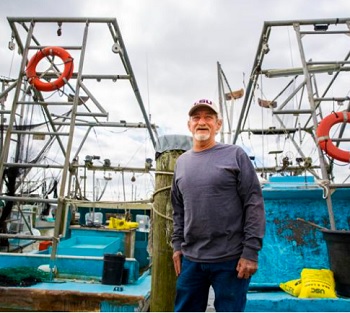
As seafood sales rise for Lent, Louisiana shrimpers say their industry is in trouble
With Lent elevating sales of crawfish, fish and shrimp across Louisiana, many local fishermen and shrimpers say they aren’t benefitting. “We’ve been here a long time, and yet we’re just going to get shoved out of the way. When importers come in and start buying cold storage and start buying infrastructure, we’re going to lose our way of life, and Louisiana is going to lose a lot. They’re more at stake than anybody because we’re known for our seafood. That’s why people come to Louisiana is for our seafood and for our culture,” said Acy Cooper, the president of the Louisiana Shrimpers Association. >click to read< 12:02
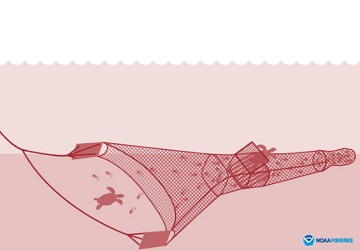
Mississippi Scientists Develop Unique Method Using Sound To Track Sea Turtle Data
Wayne Carpenter, senior research and development engineer, and Bradley Goodwiller, research scientist, are using sound to monitor turtles that exit shrimp trawls through turtle exclusion devices. “Acoustic impacts with TEDs have implications in understanding the population, migration and allocation of the species,” Carpenter said. “All of this contributes to important conservation work.” The project, Acoustic Enumeration of Sea Turtle Impacts with TEDs (Turtle Excluder Devices), was funded through the National Oceanic and Atmospheric Administration Bycatch Reduction Engineering Program. The federal government has mandated TEDs in the shrimping industry since 1987. They have been shown to be highly effective; however, obtaining information about sea turtle interactions with TED-equipped shrimp trawls has been challenging. >click to read< 14:25
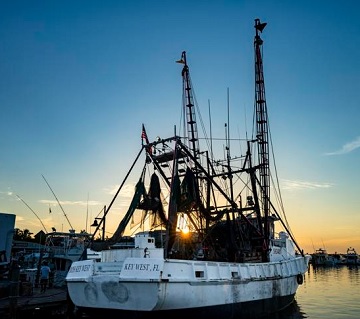
F/V Miss Key West bringing shrimp industry back to Key West harbor
It was once a significant part of Key West’s economy, but due to numerous economic forces, the last of the shrimping vessels in the harbor left around 30 years ago, according to Dan Smith. But as of a few weeks ago, Smith and James Phelps have brought the first commercial shrimp vessel back to the Key West Harbor since that time. It now sits in the same place where the Schooner Western Union, the flagship of Florida, once was next to Schooner Wharf bar. On Monday, the two owners stood on the docks next to the Miss Key West, along with their captain, Mark Thomson, and some relatives. Phelps and Smith came up with the idea to bring a shrimp vessel back to Key West, both their families were historically part of the fishing and shrimping industry in Key West. Photos, >click to read< 07:50
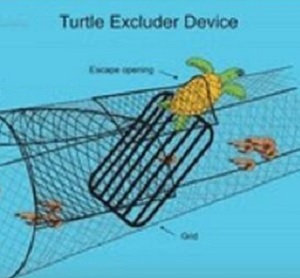
NOAA: Temporary rule allows shrimpers limited tow times as an alternative to TED’s
NOAA is publishing a temporary rule to allow shrimp fishers to continue to use limited tow times as an alternative to Turtle Excluder Devices. According to LDWF, the use will be in specific Louisiana state waters from 91° 23’ West longitude eastward to the Louisiana/Mississippi border, and seaward out three nautical miles. The temporary rule is effective from December 7, 2021 through January 5, 2022. >click to read< 12:02

Shrimpin’ Ain’t Easy
Miss Marilyn Louise, a third-generation commercial fisherwoman, is one of the largest contributors to the seafood supply chain coming through Mayport Inlet. The lifelong resident of Mayport Fishing Village walked me through what it’s like to live a life sustained by the ocean. As a child, Miss Marilyn learned to run shrimp boats from her father and grandfather. She’s since passed her knowledge and experience on to her own children, having taken her son out shrimping with her when he was only 11 days old, noting he had sea legs before he could walk on land. >click to read< 07:56
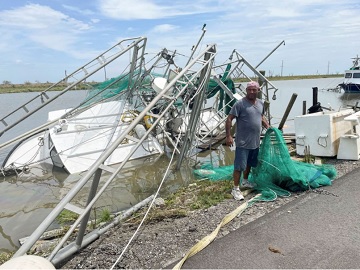
Louisiana shrimpers ‘try and survive’ after Ida sinks boats, destroys homes
Some 20%-30% of the fleet of shrimp boats in the Golden Meadow region of was wiped out by the powerful winds from the Category 4 Hurricane Ida that made landfall on Sunday, shrimpers said. The industry had already suffered lower seafood demand during the COVID-19 pandemic. Then the storm struck fishing communities southwest of New Orleans that had largely been spared when Hurricane Katrina pummeled the state 16 years ago. “We’ve never seen anything this powerful around here before,” said shrimper Russell Plaisance. Plaisance said local shrimpers lost 65%-70% of their revenue in 2020 as the pandemic shut restaurants. This year had been looking up for the top shrimp harvesting state, until the storm. >click to read< 19:04
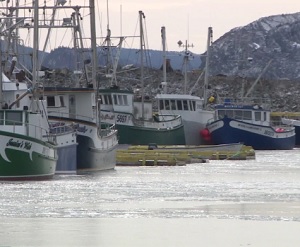
Shrimp fishery set to begin with financial loss – could be larger if boats stay at the wharf
Association of Seafood Producers president Derek Butler said the start of the fishery has been driven by a sense of responsibility among everyone that relies on the fishery to make a living. Butler said those involved in the fishery had time to decide whether or not they wanted to open, and understand this season will bring almost guaranteed financial loss. The Fish, Food and Allied Workers’ original price offer was $1.18 per pound, while processors countered with 70 cents per pound. In the end, a hearing settled on $1.08, but the ASP said that number still means losses for processors. However, Butler said the losses could be larger if boats don’t leave the wharf this season. >click to read< 16:52
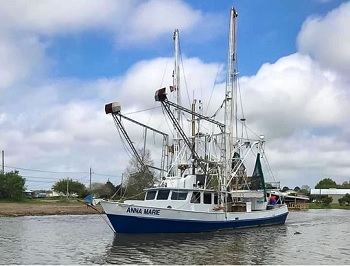
‘Another punch in the gut’: Gulf Coast shrimpers navigate the coronavirus crisis
Shrimping is a hard business. Gulf Coast shrimpers, who bring in three quarters of the nation’s catch, have been battered with waves of bad luck. Hurricanes. A flood of cheap imports. The BP Deepwater Horizon oil spill in 2010. Fresh water diversions that kill seafood. And now the coronavirus. Restaurants buy 80% of both imported and domestic shrimp, according to the Southern Shrimp Alliance. With restaurants closed or offering only takeout, no one is buying much shrimp. Next month would typically launch the peak of shrimp season as Gulf states begin their annual opening of nearshore waters to shrimping. >click to read< 07:45
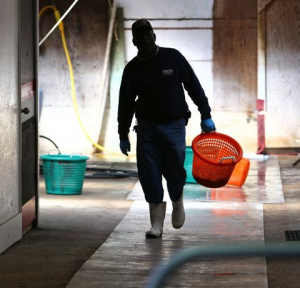
Local shrimp industry a tradition worth saving
The town of Mount Pleasant is now in the shrimping business as the new owner of the Wando dock on Shem Creek. What happens there over the next few seasons will be crucial to the future of the local seafood industry, as well as the wider Shem Creek community. First, the town needs to listen to the fishermen and provide them with a serviceable hub of operations, sufficient dock space and easy access to fuel, ice and a processing facility. >click to read<12:46

Portuguese fishermen helped launch Georgia shrimp industry
Wild Georgia Shrimp had it pretty good around here until the likes of John Martin and Joe Santos arrived on our shores following World War I. These two men were among the early wave of Portuguese refugees who crossed the Atlantic Ocean early in the 20th Century, only to chart a course right back into the sea to reap its bounty. Suddenly, our local shrimp began showing up in large numbers on menus and dinner tables from here to New York City. By the 1930s, the public’s newfound taste for these crustaceans had filled the docks along Brunswick’s East River with shrimp boats, all of them captained and crewed by stout-hearted Old World mariners. Those vessels would include the seven trawlers Joe Santos and partner John Mendes owned jointly in the Union Shrimp Company. >click to read<12:49
Texas shrimp industry battles hostile trends as season closes for two months
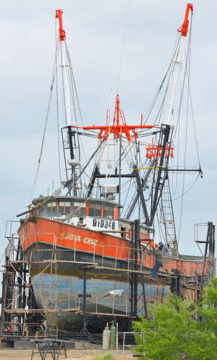 The Texas Parks and Wildlife Department’s Coastal Fisheries Division decided May 15 was a good time to close the state’s shrimp season because, according to its sampling, the average size and number of brown shrimp in Texas coastal waters is higher than the 20-year average. Texas closes its waters to shrimping from the coast to nine nautical miles out for roughly two months each year to give little shrimp time to grow before being harvested. The National Marine Fisheries Service typically imposes a closure out to 200 nautical miles at the same time. More, bigger shrimp is potentially good news for the state’s struggling shrimp industry, since big shrimp fetch higher prices, according to Andrea Hance, shrimp fleet owner and executive director of the Texas Shrimp Association. Read the rest here 19:27
The Texas Parks and Wildlife Department’s Coastal Fisheries Division decided May 15 was a good time to close the state’s shrimp season because, according to its sampling, the average size and number of brown shrimp in Texas coastal waters is higher than the 20-year average. Texas closes its waters to shrimping from the coast to nine nautical miles out for roughly two months each year to give little shrimp time to grow before being harvested. The National Marine Fisheries Service typically imposes a closure out to 200 nautical miles at the same time. More, bigger shrimp is potentially good news for the state’s struggling shrimp industry, since big shrimp fetch higher prices, according to Andrea Hance, shrimp fleet owner and executive director of the Texas Shrimp Association. Read the rest here 19:27
Louisiana shrimpers applaud new Turtle Extruder Law
 Today is a monumental day for our shrimp industry and will show the world that Louisiana fishermen and processors have always been concerned with the successful management of our shrimp fishery,” said Mark Abraham, chairman of the Louisiana Shrimp Task Force, an advisory panel that includes representatives from the industry and state agencies that regulate it. “The Shrimp Task Force applauds Governor Jindal and our state legislators who worked with us to pass this legislation.” Read the rest here 21:07
Today is a monumental day for our shrimp industry and will show the world that Louisiana fishermen and processors have always been concerned with the successful management of our shrimp fishery,” said Mark Abraham, chairman of the Louisiana Shrimp Task Force, an advisory panel that includes representatives from the industry and state agencies that regulate it. “The Shrimp Task Force applauds Governor Jindal and our state legislators who worked with us to pass this legislation.” Read the rest here 21:07






